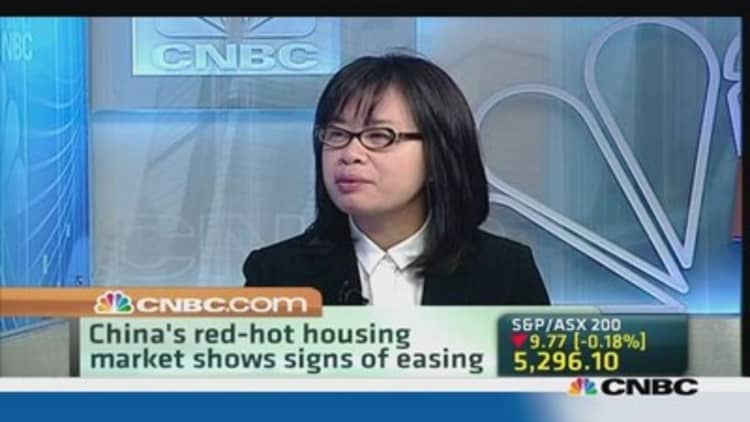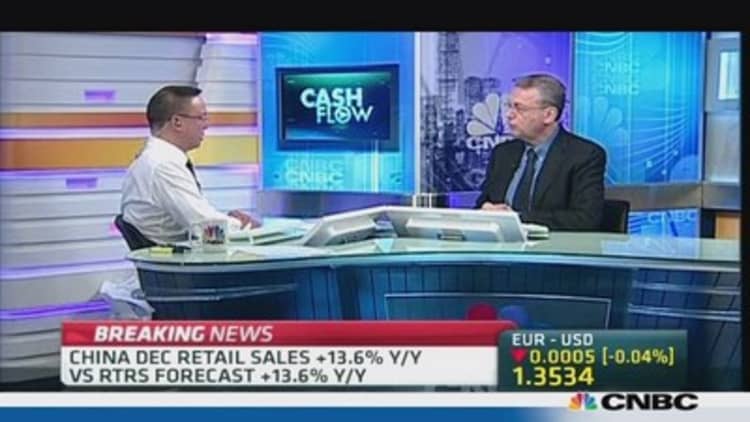
The headline climb in China's property prices last month may appear bubbly – if you look at the wrong number.
The size of the rises from a year earlier are certainly large: In December, average new home prices in 70 major cities on the mainland rose 9.9 percent from a year ago, the 12th consecutive annual rise and the same as the previous month's record gain, according to data from the National Bureau of Statistics Saturday. Some large cities such as Shenzhen and Guangzhou posted more than 20 percent price rises from a year earlier.
But while the figures make for shocking headlines, analysts are looking at month-on-month increases.
(Read more: China's red-hot housing market shows signs of easing)
"That is a better reflection of the momentum. Year-on-year data is lagging," said Lee Wee Liat, head of property research at BNP Paribas.
The month-on-month figures show an average rise of 0.4 percent in December, down from November's 0.5 percent rise and the fourth straight slowdown since August's 0.8 percent gain, according to Reuters calculations.
"The slowdown is because of the mortgage tightening in November and December. The approval process has been actually lengthening in those two months," said Nicole Wong, head of regional property research at CLSA.
(Read more: Fear of missing out fuels China property market)
She expects the pace of price rises to continue to slow. "If you look at construction new starts, it actually started to pick up in the second quarter of last year and typically, it takes about six months to nine months to get into the market as launches," she told CNBC. "With more supply, naturally the price increases will slow down."
In addition, analysts noted that China's property market isn't monolithic. While smaller cities still spur concerns of overbuilding, that isn't the case in China's biggest cities.
"Tier one and two cities have a shortage of supply," Lee said. "While there are some signs that the fast pace of property price momentum is starting to moderate, this year is one when property prices will continue to increase."

(Read more: China's appetite for offshore prime property booming)
Others are also noting that China's real-estate market is about location, location, location.
"Tier-one cities generally face an under-supply situation due to stricter property tightening, tighter supply and stronger demand. By contrast, new supply increased faster in smaller cities," JPMorgan said in a note. It expects smaller cities to face downward pressure on home prices in years ahead.
For the year, JPMorgan forecasts house prices in tier one and two cities may rise as much as 10 percent, but stay flat in tier-three cities.
Wong is overweight on the China developer stocks, but she favors players focusing on the larger cities. "We have no tier-three focused developers in the (conviction) list," she said. "We think tier-one and tier-two will do better this year."
—By CNBC.Com's Leslie Shaffer; Follow her on Twitter @LeslieShaffer1

